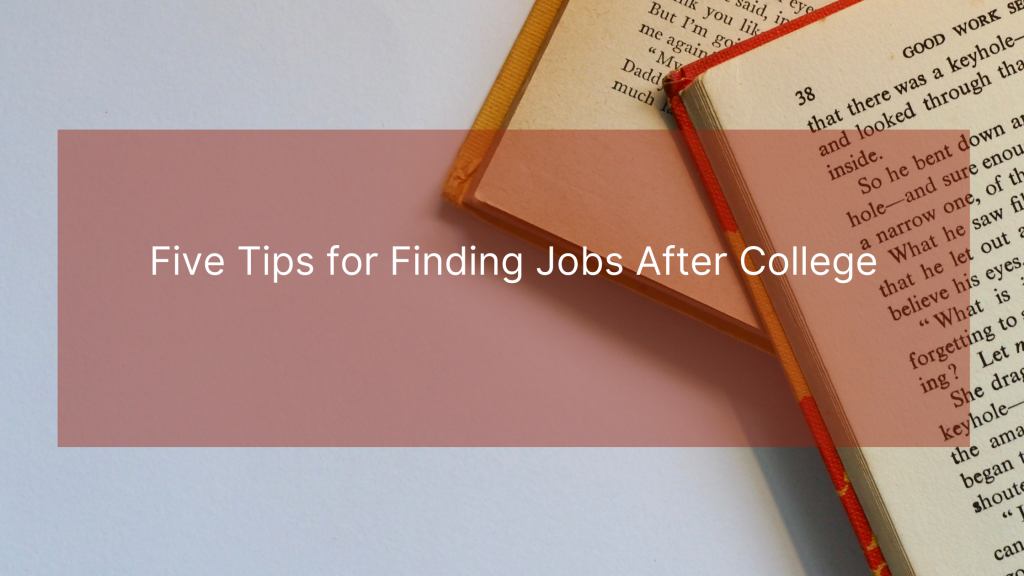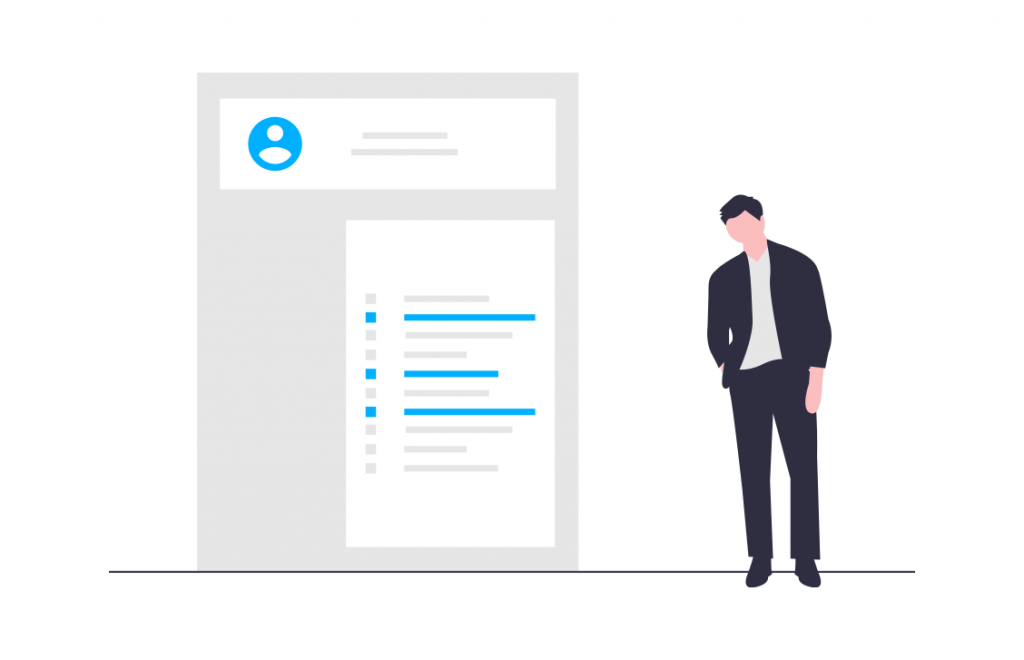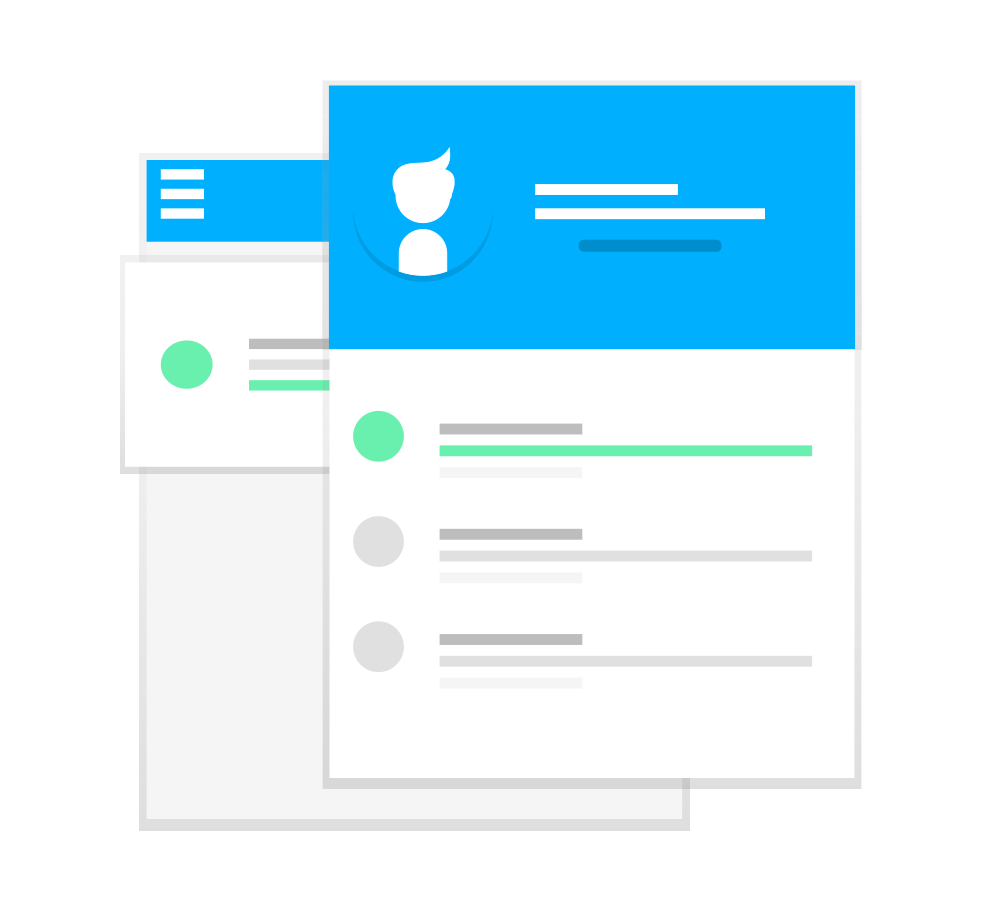
Are you a college student preparing to graduate? Do you have a plan after college? Do you know how to look for jobs during this time? It’s okay if you don’t. We know that finding this type of information can be difficult. And we know that students preparing for life don’t always have the luxury to worry about the proper steps in finding a job. Don’t worry. In this blog post, we will save you some time and share some useful tips on finding jobs for college students.
Let’s start with the basic rule-of-thumb- talking with your career counselor.
Career Counselors

While in college, it is important to know that career counselors’ are your best friend when it comes to looking/preparing for jobs. I know it can seem out-of-the-way to see your counselor. But trust me, having the proper guidance from a specialist will save you a lot of time and anxiety in finding a job.
With your career counselor, you will develop vital assets:
- Determining strengths and values
- Setting goals
- Build support and motivation
- Identifying options and choices
- Self-branding
But, sometimes, having a career counselor is not enough to land you a job. Often times, students need a tool for job hunting.
Tools for Job Hunting

It’s 2020, guys. If you aren’t using tools to look for jobs, something is wrong. A lot of jobs are also found on online job websites, such as Handshake and Indeed.
Handshake
Handshake is the ideal platform for finding jobs for college students. It is by far one of the more popular platforms and is partnered with most universities. What’s excellent about Handshake is that there is always an opportunity for newly graduated students. The way it works is that Handshake’s algorithm helps eliminate jobs that are not matched with your major. By eliminating the irrelevant jobs, students have a higher chance of finding opportunities that align with their major. If you already graduated and cannot access Handshake, don’t worry. There are plenty of other job search websites that are great for looking for jobs for college students. My favorite platform, aside from Handshake, is Indeed.
Indeed
Like Handshake, Indeed is a job search platform. Though it is not major oriented, Indeed still has plenty of opportunities worth looking into. I also find that employers are often responsive through Indeed. Finally, based on your job searches, Indeed sends daily emails of current and new job postings, eliminating extra time looking for jobs and more time perfecting your resume.
Resume Building

Resume building is an extremely tedious process that usually requires 2-4 hours out of your day. Some would say I’m crazy, but it’s true. To beat your competitors, you need to continually update your resume with the requirements seen in job applications. Employers will be looking for resumes that exactly match their requirements listed in the job application. If employers see the exact same wording as what they are looking for, there will be an increased chance of you landing a job interview.
Now, some would say, “that’s too much.” And you’re right. It is. But, wouldn’t you rather put in the work that guarantees a job? Or would you instead just rely on a basic resume? The next important thing to know when it comes to resume building is the format. The format is everything. It is like the saying, “first impressions are the most important.” A poorly written resume gives employers an idea of what the person is like- messy, inexperienced, and disorganized. On-the-other-hand, neatly written resumes impress employers. However, having a resume is not all you need when applying for jobs. Cover letters are equally important.
Cover Letters

Cover Letters are an introduction to who you are and why you are interested in the job you are applying for. Sounds easy to write, and it is. Some people think you have to sell yourself in a cover letter, and they aren’t wrong. But if you stick to who you are and be honest about what opportunities you could gain from applying, there will be no problem. Stick true to who you are and you will sell yourself as someone who is fantastic and deserves the job- it doesn’t hurt to sound confident. There are hundreds of ways to format a cover letter.
So, now that you have your tools, resume, and cover letter, the final advice I have for you is to buff up your LinkedIn profile.
Building your LinkedIn Profile

You may not believe it, but LinkedIn is THE social hangout for professionals. It’s a place to connect with others in the same field as you and apply to jobs. It’s also a great place to see who is associated with others, and what companies follow other companies. Here’s how to buff up your LinkedIn profile:
- Fill out your personal profile.
- Connect will fellow alumni, professors, previous coworkers (if you have them)
- State all the skills you know- it looks excellent to recruiters.
- It is also essential to update your skills regularly on LinkedIn. Matching your skills with LinkedIn’s algorithm will give you more significant results in jobs you are searching for and applying.
- Upload your most up-to-date resume- makes it easier for recruiters to look at your profile.
- BE ACTIVE! This means, follow groups, like and comment on other peoples’ posts.